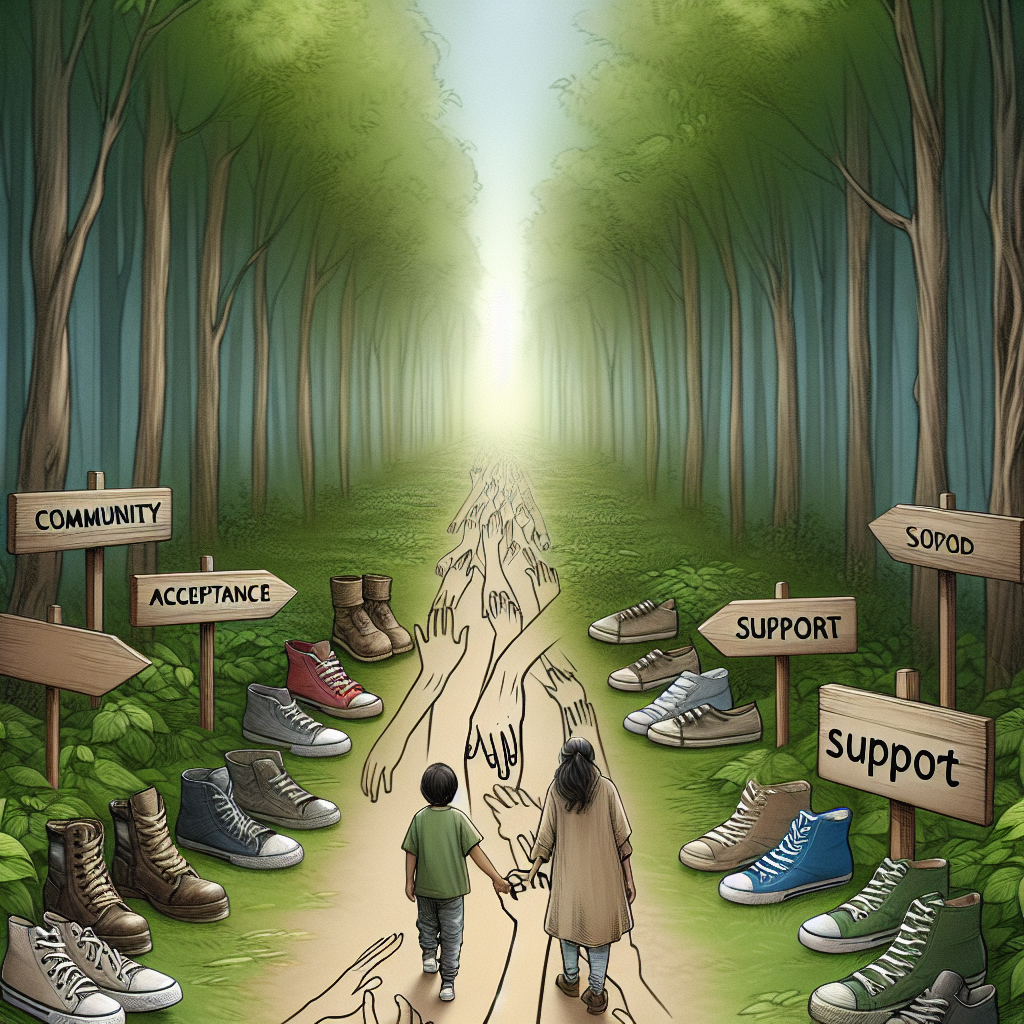
Navigating the Journey: Ultimate Resources for Parents Seeking Support Groups for Disabled Kids
Navigating the journey of parenting a child with disabilities can often feel like traversing a complex labyrinth, marked by challenges and emotional highs and lows. Parents frequently find themselves in need of support, understanding, and guidance—a community that resonates with their experiences. In this article, we shall delve into “Navigating the Journey: Top Resources for Parents Seeking Support Groups for Disabled Kids.” By uncovering invaluable resources and practical advice, we aim to illuminate the path forward for families seeking solidarity and strength.
The Importance of Support
The need for robust emotional support is paramount when raising a child with disabilities. Whether the challenges stem from developmental, physical, or cognitive differences, parents may experience feelings of isolation and confusion. In these moments, a support group offers not only encouragement but also practical advice that can significantly improve the family’s quality of life.
Emotional and Social Benefits
Support groups provide a safe space for parents to express their feelings, share experiences, and build relationships with others in similar situations. For example, a mother navigating her child’s recent autism diagnosis found an online community that offered both emotional support and access to vital resources. She learned both practical techniques to manage her child’s behaviors and strategies for advocating for his educational needs.
Types of Support Groups Available
Navigating the landscape of support groups for parents requires understanding what types of resources exist. Below, we break down the primary categories of support groups that parents can consider:
1. Online Support Groups
Overview
The digital age has paved the way for various online forums, Facebook groups, and virtual meetings that offer 24/7 support.
Advantages
- Accessibility: Join from anywhere without the need to commute.
- Anonymity: Connect without the pressure of physical presence.
Case Study
A parent named Sarah joined an interactive Facebook group specifically for parents of children with Down syndrome. Through her involvement, she discovered local events, intervention strategies, and crafted lifelong friendships with other parents who understood her struggles.
2. Local Community Groups
Overview
In-person gatherings provide an opportunity for face-to-face interaction, fostering stronger bonds among parents.
Advantages
- Personal Connection: Immediate emotional support and camaraderie.
- Resource Sharing: Access to local services and professionals.
Case Study
In a small town, a local community center started a support group for parents of children with various disabilities. Over the years, the group has created a robust network providing workshops on advocacy, counseling, and legal rights representing families’ interests.
3. National Organizations
Overview
Organizations like the Autism Society, National Down Syndrome Society, and Cerebral Palsy Foundation have established chapters that provide information, resources, and support groups across the country.
Advantages
- Reputable Resources: Trustworthy information from leading experts in the field.
- Wide Reach: Offers resources that may extend beyond local areas, reaching families nationwide.
Case Study
A family found their footing after connecting with the National Autism Society. They attended workshops, gained significant insights into educational rights, and navigated IEP (Individualized Education Program) meetings more effectively.
How to Find the Right Support Group
Choosing the right support group is crucial for parents seeking to share their experiences and gather insights. Here are actionable steps to help you navigate this process:
1. Assess Your Needs
Determining your primary concerns will help identify the most suitable group—be it for emotional support, guidance, or practical advice.
2. Conduct Online Research
Use social media platforms, local directories, and specialized websites to find groups that align with your needs.
3. Attend a Few Sessions
Don’t hesitate to attend a few meetings from different groups. This trial-and-error process helps pinpoint the group with which you feel the most comfortable.
4. Seek Recommendations
Ask teachers, therapists, and physicians for suggestions. Fellow parents often have firsthand experience with local resources.
5. Utilize Social Media
Platforms like Facebook and Instagram have pages dedicated to specific disabilities or parenting groups. Engaging with these can lead to discovering excellent support resources.
Using Technology for Support
Online Platforms and Forums
Technology has revolutionized how parents connect and receive support. There are dedicated platforms where parents can regularly interact.
| Platform Name | Description | Features |
|---|---|---|
| Care.com | Offers resources for childcare and support | Blogs, advice articles |
| Parenting Special Needs | A hub for resources and community | Articles, forums, workshops |
| MyAutismTeam | A social network specifically for autism parents | Connections, insights |
Online Therapy Resources
Teletherapy has emerged as a popular option, allowing parents to connect with counselors from the comfort of home. Various online counseling services cater specifically to issues related to parenting children with disabilities.
Inspirational Leadership in the Community
Many parents have turned their experiences into powerful tools for change, becoming advocates for disability rights or establishing local support groups. Their journeys are worth noting:
Case Study: Building a Support Organization
Maria, a mother of a child with cerebral palsy, faced immense challenges. Through perseverance, she founded a local nonprofit aimed at supporting families like hers. This organization not only provided a support group but also educated the community about accessibility needs. Maria’s story exemplifies how one parent’s journey can lead to transformative community resources.
Making the Most of Support Groups
Being an Active Participant
Engagement is crucial. By sharing your experiences and insights, you contribute to creating a supportive atmosphere for all members. Here’s how to be more involved:
- Attend Regularly: Consistency fosters deeper connections.
- Share Your Story: Open up about your journey, helping others through shared experiences.
- Facilitate Discussions: Bring up topics that matter to you, encouraging dialogue among members.
Create Resource Lists
Compile and share a list of local resources, articles, and useful websites with fellow group members to enhance collective knowledge.
Conclusion
Navigating the journey of parenting children with disabilities can be overwhelming, yet it is filled with hope and possibility. This comprehensive exploration of Navigating the Journey: Top Resources for Parents Seeking Support Groups for Disabled Kids serves to empower parents to seek and engage in supportive communities that can significantly enhance their family’s quality of life. Remember that you are not alone—there is a network of understanding and support waiting to welcome you.
Motivational Takeaway
As you navigate this journey, continue to seek out connections that inspire, resources that empower, and a community that uplifts. The right support can transform challenges into opportunities, paving the way for a brighter future for you and your child.
FAQs
1. What are the benefits of joining a support group?
Joining a support group can provide emotional support, practical advice, increased understanding of your child’s needs, and help you build lasting friendships with others who share similar experiences.
2. How do I know if a support group is right for me?
Consider your specific needs—emotionally, informationally, or practically. Attend a few meetings and gauge your comfort level. Trust your instincts about the group dynamics.
3. Are online support groups effective?
Absolutely! Online support groups provide access to a wealth of information and connections without geographical limitations, making them a valuable resource for many parents.
4. Can I find support groups specifically for my child’s disability?
Yes, many organizations cater to specific disabilities. Conduct research through national and local organizations to find targeted support groups.
5. How do I safely share my story in a support group?
Privacy is essential. Most groups will have guidelines about sharing. Feel free to share as much as you’re comfortable with, keeping in mind the importance of confidentiality for others as well.
By exploring the various resources available and connecting with fellow parents, you can navigate the journey of raising a child with disabilities with greater knowledge, strength, and community support.











